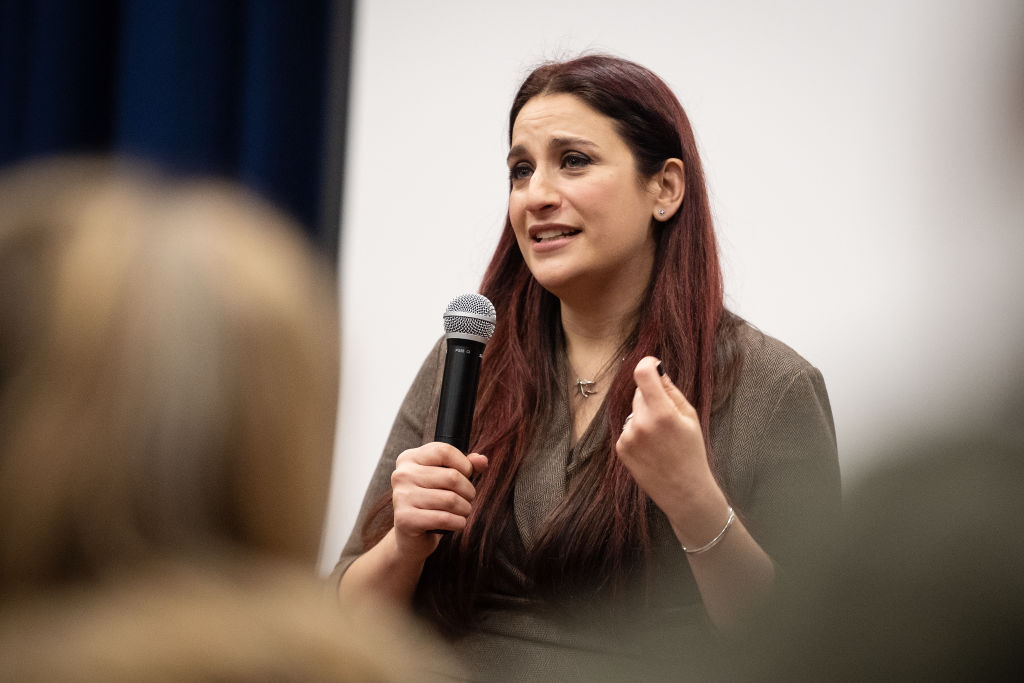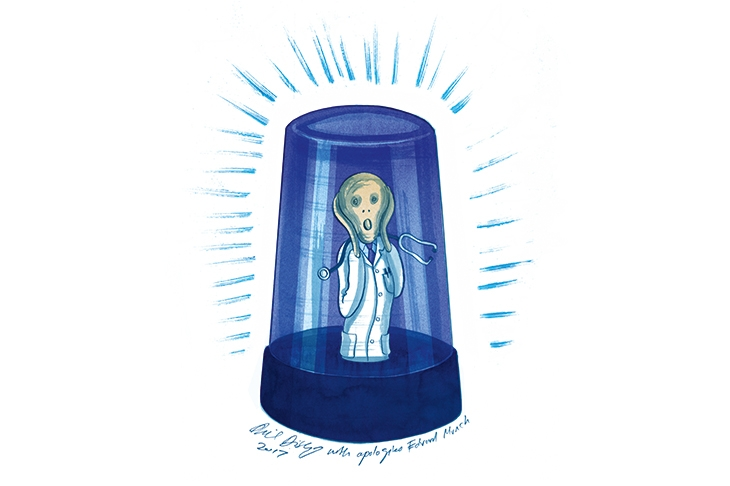Two weeks before the general election, the Jewish Chronicle commissioned a Survation poll to map the voting intentions of British Jews. To our surprise, we found that, unlike the rest of the country, the Tories were just ahead in the community – by nine percentage points. The stain of the Corbyn years, it seemed, had not yet been fully erased.
The following week, however, a second, larger poll was published. This one, by Jewish Policy Research, put Labour 16 points ahead.
It was against this background of ambiguity that amid high drama overnight, the Jewish heartland seat of Finchley fell to Labour’s Sarah Sackman, who defeated the Conservative candidate, Alex Deane, by 4,581 votes. The result was particularly poignant given the fact that the seat had previously been held by Mike Freer, who had stood up for the Jews and Israel for 14 years before a shameful act of arson made it all too much. A fighter to the end, he was pictured canvassing for Deane on the very last day of the campaign.
As the late Rabbi Lionel Blue said: ‘Jews are like everybody else but more so.’ This is especially true in politics, where radical movements that are subversive to western values inevitably come for the Jews first.
A question that has been foremost in the minds of many British voters over the past six weeks has been whether Labour – and Sir Keir Starmer – have changed. Just five years ago, it was a party of cranks, extremists, bigots and anti-Semites. Just five years ago, Sir Keir appeared to do his utmost to put their hempy chieftain in No. 10. Could the country trust him and his party now?
For Jews, this question cut particularly deep. As the campaign developed and Sir Keir was questioned repeatedly about his former support for Corbyn, his answers left many bewildered.
First, he explained it by saying that he always knew Corbyn would lose. This created more questions than it answered, as it suggested that this was a man who was perfectly capable of supporting a loser, under the pretence of holding values that he did not hold, over a period of several years. Hardly a chap you might entrust with the keys to Downing Street. What would he have done had Corbyn won?
The Labour leader then changed tack, claiming that he had experienced a Damascene conversion to the cause of putting the country before the party. Once again, this created new queries. Was he really telling us that his entire political career until 2019 had been spent wrapped in a self-serving, partisan delusion? If so, how was it possible to flip the switch on such a deeply ingrained flaw?
Moreover, if he was able to change his ideological clothes with such ease, how could we be sure that the new, centrist Labour party was anything more than a ploy to win power, a Trojan horse for his older, more radical beliefs?
Concerns such as these were the subject of many a Friday night dinner conversation in the Jewish community, as well as in the British mainstream. The years since 2015 have been painful for the Jews, particularly those on the left, who suffered the ignominy of having their political home reject them in the most vicious of ways.
After Corbyn’s defenestration, Jewish progressives felt a powerful desire to take Sir Keir at his word and return to the fold. But something held many of them back. To wish for Labour to have changed was all very well, but to allow that to cloud one’s judgment could lead to even greater ruination.
This uncertainty was evident as recently as two weeks ago, when despite a huge swing of 50 points to Labour, enough members of the community remained unconvinced enough to deprive Sir Keir of a majority in our polling. A week later, however, the matter seemed settled. Labour was kosher again.
Partly, this was due to the determined efforts of Sir Keir himself in ‘rooting out’ anti-Semitism from the party. Partly it was due to the way in which he steered Labour carefully but insistently back towards the centre; when parties veer to the radical fringes, it is never good for the Jews.
But it was also due to the Labour rank-and-file, who matched Sir Keir’s efforts with more quotidian goodwill gestures of their own. Sackman, a barrister specialising in environment-related cases who has been vice-chair of the Jewish Labour Movement for more than eight years, was an excellent choice of candidate for Finchley. She and her team worked hard to rebuild bridges. Last night, their efforts were rewarded.
The cumulative effect of a party’s culture can be a powerful thing, for bad as well as for good. God knows we have seen both from Labour over the last decade.
It would be a mistake to suggest that all the difficult questions about Sir Keir’s support for Corbyn have been adequately addressed
As the sun rises over a Labour Britain, I think of Dame Louise Ellman, the veteran MP for Liverpool Riverside, who was viciously hounded out of the party during the Corbyn years. I discussed the matter with her at some length a couple of months ago. At one point, she told me, local party members launched a project to ‘dehumanise’ her. Nobody used her name, referring to her instead as ‘the MP’. Nobody made eye contact with her. Whenever she entered a room, people walked out.
This was all because of her very reasonable lack of antipathy for Israel, her ancestral homeland. When brought to life with anecdotes like this, such blatant anti-Semitism makes the skin crawl. Dame Louise had more reason than anyone to stay away from Labour for the rest of her life; but in 2021, she rejoined it. ‘I am confident that, under the leadership of Keir Starmer, the party is once again led by a man of principle in whom the British people and Britain’s Jews can have trust’, she said at the time.
She wasn’t the only one. Last year, Luciana Berger – who had also suffered torrents of abuse at the hands of Corbynistas – also returned. If these brave women could show forgiveness and confidence in the new regime, the stage was set for other left-wing Jews to follow suit.
It would be a mistake to suggest that all the difficult questions about Sir Keir’s support for Corbyn have been adequately addressed. In politics, some things will never be fully understood. It is certain, however, that the majority of British Jews, particularly those inclined to the left, believe in Labour again. They have Sir Keir to thank for that.








Comments